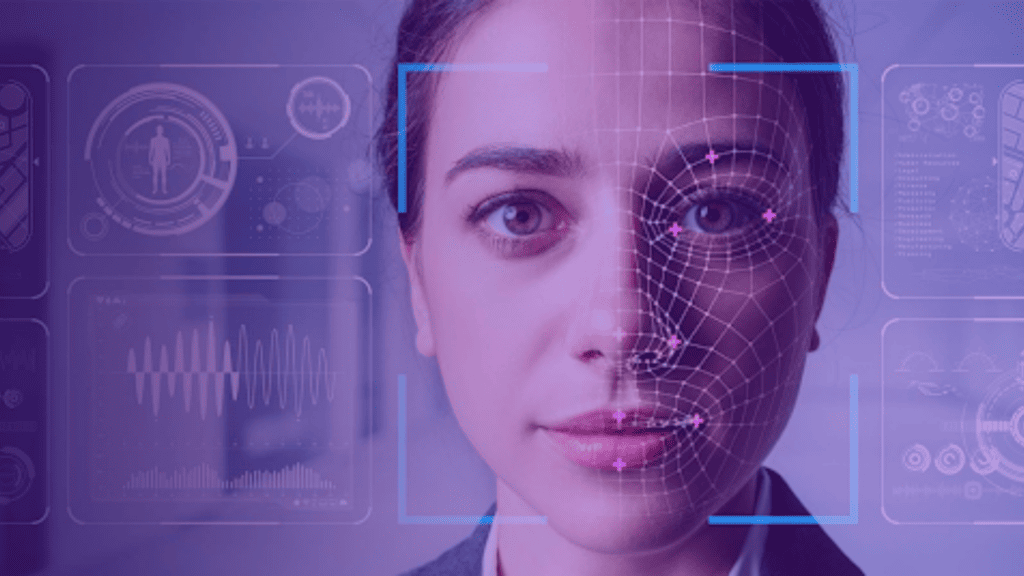Generative AI is a powerful tool used to study markets better. It eases the process of collecting, analyzing, and predicting data, offering speedy insights that support decision-making. Surprisingly, generative AI doesn’t just make things quicker; it also makes predictions more accurate, pinpointing trends and behaviors that humans might miss. With these smart machines on our side, we’re not only saving time but making money smarter. Entering the realm of trading and investments, one would find another world impacted greatly by this technology.
Generative AI has revolutionized market analysis by automating data collection, analysis, and prediction processes. This technology enables faster insights, more accurate predictions about market trends and consumer behaviors, leading to increased productivity, cost savings, and the creation of new revenue streams. As a result, it has the potential to generate between $3.5 trillion and $7 trillion in economic benefits annually, according to McKinsey & Company.
Benefits of Generative AI in Market Analysis
Generative AI, as an advanced technology, offers numerous benefits that can significantly impact market analysis. One of its standout advantages is the automation of data collection, analysis, and prediction processes. With this capability, businesses can efficiently gather and process vast amounts of data from various sources, enabling them to make informed decisions based on real-time insights.
Additionally, generative AI contributes to faster insights by swiftly identifying patterns and anomalies within large datasets. This expedites decision-making processes, allowing businesses to respond promptly to changes in market trends and consumer behaviors. The speed and accuracy with which generative AI provides these insights are unmatched in comparison to traditional analytic methods, empowering organizations to stay agile and competitive in dynamic markets.
To illustrate, consider a company using generative AI to analyze consumer sentiment across social media platforms. The AI quickly identifies emerging trends and public sentiment, allowing the company to tailor their marketing strategies in real time, thereby staying ahead of the curve and meeting consumer demands effectively.
Enhanced Predictive Capabilities
Generative AI also enhances predictive capabilities by providing more accurate forecasts regarding market trends and consumer behaviors. By analyzing historical data and identifying correlations not easily detectable by human analysts, generative AI enables businesses to make informed predictions, anticipate future market shifts, and proactively capitalize on emerging opportunities.
Some might argue that relying solely on AI predictions can lead to oversight or bias. While this is a valid concern, it’s crucial to emphasize that generative AI is designed to complement human decision-making rather than replace it entirely.
Generative AI’s ability to identify patterns, anomalies, and opportunities in large datasets not easily detectable by human analysts provides invaluable support for businesses seeking deeper insights into market dynamics.
Moreover, its role in enhancing productivity, cost savings, and uncovering new revenue streams cannot be overstated. By automating repetitive tasks and streamlining complex analytical processes, generative AI frees up valuable human resources for more strategic initiatives. Additionally, the cost efficiencies achieved through enhanced productivity and accurate predictions contribute significantly to an organization’s bottom line while paving the way for innovative revenue-generating opportunities.
In essence, the adoption of generative AI in market analysis presents a transformative paradigm shift characterized by enhanced efficiency, superior insights, and sustainable growth for businesses across various industries.
Predictive Power of Generative AI in Trading and Investments
Generative AI serves as an analytical crystal ball for traders and investors. It doesn’t predict the future exactly, but it leverages patterns to speculate on potential future occurrences. By scrutinizing extensive historical data and current market dynamics, generative AI can provide insightful predictions about future economic trends.
When making decisions about investments or trades, it’s akin to consulting a crystal ball for hints about what lies ahead. Generative AI swiftly analyzes vast amounts of data, searching for indicators that could guide decision-making based on past similarities.
Forecasting Future Market Movements
Generative AI doesn’t rely on wild guesses; instead, it utilizes observed patterns from the past to make informed predictions about future market movements. This helps in identifying the trends likely to persist and those likely to change direction.
Understanding these patterns empowers traders and investors to adjust their strategies proactively based on expected market shifts, particularly during unpredictable times affected by external events such as economic fluctuations or political changes.
Identifying Potential Trading Opportunities and Risks
One of the significant advantages of employing generative AI in trading is its ability to uncover opportunities and risks that may elude human perception. Its rapid analysis of extensive information enables the discovery of hidden insights buried beneath copious data points—insights that individuals might struggle to discern on their own.
Imagine having someone capable of sifting through hundreds of pages of reports, news articles, and market data within minutes—that’s the power of generative AI. When it uncovers essential findings, it promptly alerts you so that you can make informed decisions based on that information.
Automating Trading Strategies
Generative AI not only aids in monitoring and predicting but also in automating trade executions automatically. Picture being able to execute trades instantly once specific conditions are met without having to manually monitor the market throughout the day.
This automation proves invaluable when speed is paramount in seizing fleeting opportunities or safeguarding against sudden market downturns.
Personalized Investment Recommendations
Moreover, generative AI takes a step further by offering personalized investment recommendations based on individual risk tolerances and financial objectives. This personalized approach assists individuals in optimizing their portfolio management according to their unique circumstances.
The predictive capabilities of generative AI enable traders and investors to stay ahead of market movements, identify opportunities, automate strategies, and receive personalized recommendations—all contributing to more informed decision-making processes.
As we journey deeper into the world of generative AI in trading and investments, we will unravel how this cutting-edge technology actively shapes and defines emerging market trends.
Unveiling Market Trends: Generative AI at Work
Generative AI acts like a perceptive detective that can reveal clues and patterns in the vast sea of market data. By analyzing consumer behavior and preferences, it empowers businesses to create products and services that truly resonate with people. This isn’t some sleight of hand; it’s actually based on extensive analysis of math, patterns, and insightful reasoning.
Analyzing Consumer Behavior: Picture this—Generative AI processes enormous amounts of data from social media, online shopping platforms, and various sources to discern what people are interested in buying, what they favor, what they dislike, and what triggers them to make a purchase.
This valuable insight into consumer behavior enables businesses to tailor products and services to meet demand. For example, a clothing company might recognize a trending pattern or color among their target audience. Armed with this information, they can adjust their upcoming product lines to align with the demand, ensuring they offer sought-after items.
This isn’t just advantageous for businesses—it’s also beneficial for consumers! It means we’re more likely to encounter products and services that fulfill our needs because companies are working smarter to understand our interests and desires.
It’s like having a crystal ball to anticipate what everyone wants before they even realize it themselves.
Tracking Competitor Activities: Generative AI doesn’t limit itself to understanding customers’ desires; it also monitors our competitors’ activities. By collecting and analyzing data on their actions and market dynamics, businesses can strategize effectively.
Imagine playing chess with an eagle-eye view of your opponent’s moves—Generative AI provides businesses with that strategic advantage. Companies can adapt their strategies based on competitor movements, staying one step ahead in this competitive chessboard of the market.
For instance, a marketing team might use Generative AI to track the advertising tactics of their competitors across different platforms. This data can then be used to make informed decisions about where to focus their own marketing efforts for better results.
With its ability to analyze consumer behavior, track competitor activities, identify emerging trends, and enhance market segmentation, Generative AI serves as an invaluable tool for businesses seeking to stay ahead in today’s dynamic markets.
As we navigate through the impact of Generative AI on market analysis and the broader economy, we’ll now explore its economic influence in even greater detail.
Generative AI and its Economic Impact
Generative AI isn’t just a fancy, futuristic technology reserved for large corporations; it’s actively shaping the economy as we know it. Enabling organizations to explore new pathways for growth and improvement, McKinsey & Company estimates that *generative AI has the potential to unlock annual economic benefits of up to a staggering $7 trillion.
Imagine all the ways generative AI can increase productivity, cut costs, and create entirely new revenue streams across various industries. It’s not just about using fancy technology—it’s about making work easier and more efficient for everyone involved.
One key way that generative AI impacts the economy is through improved market analysis. Businesses can automate their analysis processes and get insights faster than ever before. This means they can make better decisions quicker and stay ahead of their competition.
By contributing to economic growth through enhanced business strategies, more accurate market predictions, and more engaging consumer experiences, generative AI is ushering in a new era of economic innovation. It’s not just businesses that benefit—when the economy improves, it helps everyone from employees to consumers.
Take, for example, a small retail business that uses generative AI to analyze customer data and predict trends in purchasing behavior. By understanding their customers better, they can tailor products and marketing efforts more effectively, potentially leading to increased sales.
In the financial sector, generative AI assists in creating more sophisticated investment strategies and risk management techniques. This not only improves the efficiency of financial institutions but also lowers the risk associated with financial transactions.
What’s truly remarkable here is how generative AI isn’t just revolutionizing individual businesses; it’s reshaping entire industries and accelerating global economic growth. In an increasingly competitive world, having the ability to gather insights quickly and accurately gives organizations a significant edge.
Considering these factors, it’s clear that generative AI is not just a technological advancement; it’s a fundamental driver of economic progress and prosperity on a global scale
Implementing Generative AI in Modern Market Research
Modern market research centers around understanding people – what influences their purchasing decisions, their preferences, and the reasons behind their choices. Traditionally, this has involved sifting through extensive data and conducting surveys to identify patterns. However, Generative AI is revolutionizing these processes, offering speed and deeper insights.
Let’s examine in detail how generative AI is reshaping the landscape:
Streamlining Data Collection and Analysis
In the past, collecting and analyzing data was predominantly a manual process. Now, with generative AI, companies can automate data collection from diverse sources like social media, e-commerce platforms, and customer feedback. This not only saves time but also provides a more comprehensive view of consumer behavior.
Leveraging AI-Driven Tools for Faster Insights
Generative AI provides tools that utilize natural language processing and machine learning to offer real-time insights and predictive analytics. This enables businesses to make swift decisions based on current information instead of relying solely on historical data, giving them a competitive advantage in the market.
Gaining Deeper Consumer Behavior Understanding
Sophisticated analytics powered by generative AI can uncover intricate patterns in consumer behavior that traditional methods might overlook. By delving beyond surface-level insights, businesses can genuinely comprehend their customers’ preferences and customize their offerings to effectively meet those needs.
Enhancing Overall Efficiency and Effectiveness
By automating repetitive tasks and providing advanced analytical capabilities, generative AI improves the overall efficiency of market research methodologies. This allows researchers to focus on strategic analysis and decision-making rather than spending time on manual data processing.
For instance, a company utilizing generative AI might use it to analyze online conversations about their products or services in real-time to gauge customer sentiment, enabling them to stay ahead of trends and be more responsive to consumer needs.
By integrating generative AI into market research practices, businesses not only gain profound insights into consumer behavior and market dynamics but also fortify their ability to swiftly adapt to changing trends and customer preferences.
Discuss’ Generative AI
The incorporation of generative AI in modern market research is not merely a passing trend; it is an influential tool that empowers businesses to make data-driven decisions that propel growth and innovation.
As you delve into the realm of market analysis powered by generative AI, consider exploring how Discuss and its suite of Generative AI tools can elevate your market research strategies and glean human-centric insights with cutting-edge, next gen technology.




